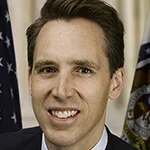 |
Impressed by Saudi Arabia’s sportswashing deal with the PGA Tour, the Qatar Investment Authority has taken a minority stake in Monumental Sports & Entertainment, owner of seven professional and amateur teams including the NBA’s Washington Wizards, WNBA's Washington Mystics and NHL’s Washington Capitals.
The investment comes in the aftermath of Qatar’s hosting of the 2022 World Cup, a PR dream turned nightmare as the world focused on the mistreatment and deaths of the migrant workers who were recruited to build the infrastructure to support the desert event.
Hassan Al-Thawadi, who headed the World Cup, said 400 to 500 worker migrants died in connection with the construction of facilities since the Gulf State was awarded the games in 2010.
Human rights organization say that number is ridiculously low.
Amnesty International called the tourney, “Qatar’s World Cup of Shame,” while Human Rights Watch said thousands of migrant deaths remain “unexplained, uninvestigated and uncompensated.”
The Qataris prefer to focus on US fun and games rather than compensating the impoverished families of victims living in the Philippines, Pakistan, India, Bagladesh and Nepal.
They found a willing but close-mouthed partner in Monumental.
The company issued a very low-key press release on July 10 to announce the tie-up with Qatar. It downplayed such a monumental investment.
The release did not include a statement from Monumental billionaire founder/chairman/CEO Ted Leonsis about why he sold a chunk of his business to the Qataris.
The release fails to give a reason for the investment other than the outlay “is consistent with QIA’s focus on long-term, high-value investments.” What's in it for Monumental?
There are no press contacts. Inquiries are directed to media@qia@qa.
Monumental is definitely a high-value sportwashing investment for the QIA.
But Leonsis has some explaining to do about why he decided to aid and abet Qatar’s effort to wash away its human rights abuses.
Kudos to former AT&T chief Randall Stephenson for resigning his post on the PGA Tour’s policy board to protest its organization’s decision to jump into bed with Saudi Arabia.
The deal “is not one that I can objectively evaluate or in good conscience support, particularly in light of the US intelligence report concerning Jamal Khashoggi in 2018,” Stephenson wrote in his resignation letter.
Released in 2021, the intelligence report concluded that Saudi Arabia Crown Prince Mohammad bin Salman approved the operation to capture or kill the Washington Post contributor and Saudi dissident.
“We base this assessment on the Crown Prince’s control of decision-making in the Kingdom, the direct involvement of a key adviser and members of Muhammad bin Salman’s protective detail in the operation, and the Crown Prince’s support for using violent measures to silence dissidents abroad, including Khashoggi,” said the report.
Connecticut Senator Richard Blumenthal on July 11 urged PGA Tour executives to stand up to Saudi sportswashing.
“There is something that stinks about this path that you are on right now,” he said, in allowing the Saudi Public Investment to have a major financial stake in the golf partnership.
He promised to continue shining a spotlight on the Saudi/PGA alliance.
Stressed out ESGers. Political polarization and the anti-woke crusade are making it a lot harder for CSR and ESG executives to carry out their jobs, according to a survey from the Association of Corporate Citizenship Professionals.
The survey of 149 companies with more than $1B in community investments found intense pressure to produce results in a charged environment, ofter with fewer resources and continuing post-pandemic challenges.
Eighty-six percent of respondents report increased demand for their services, 50 percent suffered burnout and 46 percent doubt they can meet expectations.
CSR and ESG professionals are being pushed past their limits while resources decrease or remain stagnant, according to the report.
“Without the financial and human resources and support from the C-suite that these initiatives require to be effective, the gains companies have made in the last five years will quickly lose momentum,” said Carolyn Berkowitz, ACCP president. “Building back stakeholder trust is far more expensive than not losing it in the first place.”
The top five social priority areas for companies are environmental sustainability (56 percent), K-12 education (53 percent), food insecurity (49 percent), workforce development/job training (46 percent) and racial justice/equity (44 percent).
PR play of the month goes to Don Stevens, chief of the Nulhegan Band of The Coosuk Abenaki Nation, who called out the phonies at Ben & Jerry’s.
The company issued a statement on July 4, saying the country was founded on stolen indigenous land and it is time to return it to Native Americans.
It suggested beginning in South Dakota and giving Mount Rushmore to the Lakota tribe.
Stevens believes Ben & Jerry’s is on the right track but should kick off its effort in Burlington, Vermont. where it is headquartered. Burlington sits on ancestral lands of the Abenaki confederacy.
Stevens said his tribe is “always interested in reclaiming the stewardship of our lands throughout our traditional territories.”
He is willing to work with Ben & Jerry’s on the best path forward.
After all, the company’s Independence Day message said it is time to ensure that Indigenous people can again govern the land their communities called home for thousands of years.
What’s the hold-up, Ben and Jerry, in returning the Burlington HQ land to its rightful owners?


 Democrats play their favorite game, which is bashing Big Oil for its effort to cast doubt on global warming... Wingnut Marjorie Taylor Greene justified her vote against the Antisemitism Awareness Act by sputtering antisemitic nonsense... The deeply politically polarized USA stands united in worries about 2024 election coverage.
Democrats play their favorite game, which is bashing Big Oil for its effort to cast doubt on global warming... Wingnut Marjorie Taylor Greene justified her vote against the Antisemitism Awareness Act by sputtering antisemitic nonsense... The deeply politically polarized USA stands united in worries about 2024 election coverage. What would you do if you have received a call from one of Musk’s few remaining top lieutenants to see if you would be interested in advising him on PR matters?
What would you do if you have received a call from one of Musk’s few remaining top lieutenants to see if you would be interested in advising him on PR matters?  Nike finally throws in the towel and admits that its new MLB uniforms are a flop... A good chunk (34 percent) of TikTokers support a ban on the Chinese app.... "Lede of the Week Award" goes to Wall Street Journal reporter Angus Berwick for story abourt John Jacob Astor IV's gold pocket watch.
Nike finally throws in the towel and admits that its new MLB uniforms are a flop... A good chunk (34 percent) of TikTokers support a ban on the Chinese app.... "Lede of the Week Award" goes to Wall Street Journal reporter Angus Berwick for story abourt John Jacob Astor IV's gold pocket watch. Republican tough guys Josh Hawley and Tom Cotton want Biden to send the National Guard to Columbia University to put an end to student protests... Bernie blasts Bibi for insulting America's intelligence by equating criticism of Israel's government with antisemitism... German court convicts former financial PR exec who claims he wasn't aware that trading on tips is illegal.
Republican tough guys Josh Hawley and Tom Cotton want Biden to send the National Guard to Columbia University to put an end to student protests... Bernie blasts Bibi for insulting America's intelligence by equating criticism of Israel's government with antisemitism... German court convicts former financial PR exec who claims he wasn't aware that trading on tips is illegal.  Southern governors claim they know what's best for their working class, and it's not pay raises... A Ukrainian human rights group played a key role in convincing House Speaker Mike Johnson to hold a vote to send arms to Ukraine, Israel and Taiwan... Trump Media & Technology Group blames short-selling and not lousy outlook for its stock slump.
Southern governors claim they know what's best for their working class, and it's not pay raises... A Ukrainian human rights group played a key role in convincing House Speaker Mike Johnson to hold a vote to send arms to Ukraine, Israel and Taiwan... Trump Media & Technology Group blames short-selling and not lousy outlook for its stock slump.


 Have a comment? Send it to
Have a comment? Send it to 
No comments have been submitted for this story yet.